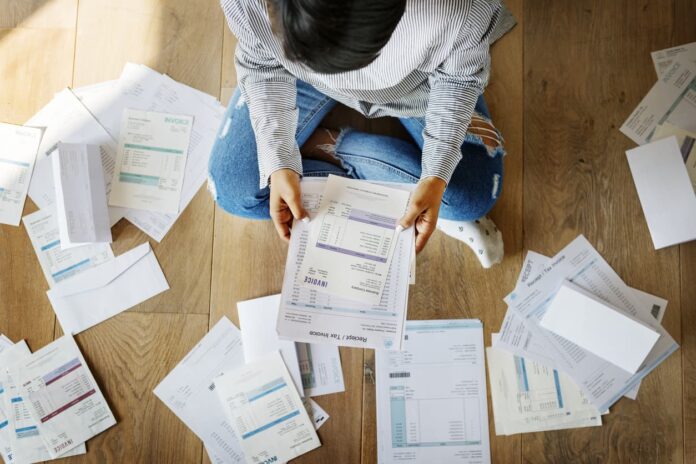As a business owner, you are likely no stranger to the world of taxation and compliance. One important aspect of this process is obtaining a unique taxpayer identification number, commonly referred to as a UTR number.
Here we will talk about Company UTR numbers, explaining what they are, why they are important, and how to get a UTR number.
Contents
- What is a Company UTR Number?
- Why is a Company UTR Number Important?
- When You Need a UTR Number
- What information do I need to provide when registering my company as “active” with HMRC for tax purposes?
- How to get a UTR number
- Who Needs a Unique Taxpayer Reference Number?
- Is a UTR number the same as a tax code?
- Can the UTR number be shared?
- Benefits of Having a Company UTR Number
- Common Mistakes to Avoid When Obtaining a Company UTR Number
- Conclusion
- FAQs
- What is a Company UTR Number?
- Who needs a Company UTR Number?
- How to get a UTR number?
- What is the purpose of a Company UTR Number?
- Is a Company UTR Number the same as a tax code?
- Can I use my Company UTR Number for personal tax purposes?
- What should I do if I lose or forget my Company UTR Number?
- Read More:
What is a Company UTR Number?
A Company UTR number, also known as a Unique Taxpayer Reference (UTR) number, is a unique identifier assigned to a company by the tax authorities.
This number is used to identify the company for tax purposes and is required for various financial transactions, like opening a business bank account, filing tax returns, and making tax payments.
The UTR number is typically a combination of letters and numbers, and it is unique to each company.
Why is a Company UTR Number Important?
A Company UTR number is important for many reasons. Firstly, it serves as a unique identifier for the company, allowing the tax authorities to track and monitor the company’s financial transactions.
Secondly, it is required to open a business bank account, as banks use the UTR number to verify the company’s identity.
Also, the UTR number is necessary for filing tax returns and making tax payments, as it helps the tax authorities to accurately identify the company and process its tax obligations.
When You Need a UTR Number
You need a UTR number if you:
- Are self-employed or own a limited company
- Owe tax on savings interest, dividends, or capital gains
- Have a total taxable income of more than £100,000
What information do I need to provide when registering my company as “active” with HMRC for tax purposes?
When registering your company as “active” with HMRC for tax purposes, you will need to provide the following information:
- Date your company became active: This will determine the start of your Corporation Tax accounting period.
- Address where your company’s principal business activities take place: This is the address where your company’s main business activities occur.
Also, you will need to create a Government Gateway account and provide the following information about your company:
- Company name
- Company registration number (CRN)
- Unique Taxpayer Reference (UTR)
- Tax Office Number (the 3-digit reference that comes before the UTR on the letter from HMRC)
You will also need to provide information about yourself and your business, like your name, address, and business activities.
How to get a UTR number
To get a Company UTR number is a relatively straightforward process. To start, you will need to register your company with the relevant tax authorities. This typically involves submitting an application form, providing required documentation, and paying a registration fee.
The specific requirements and process may vary depending on the country or region where your company is registered.
Who Needs a Unique Taxpayer Reference Number?
The following entities and people need a Unique Taxpayer Reference (UTR) number:
- Self-employed people: Those who are self-employed, sole traders, or own a limited company need a UTR number to file their tax returns.
- Businesses: Companies, partnerships, and sole traders need a UTR number to file their tax returns and for corporation tax purposes.
- People who complete a tax self-assessment: Anyone who completes a tax self-assessment needs a UTR number to file their tax return online or via post.
- Those who need to register for self-employment: people who need to register for self-employment or are required to submit a self-assessment tax return need a UTR number.
Is a UTR number the same as a tax code?
No, a UTR number is not the same as a tax code. Here are the differences between a UTR number and a tax code:
| Aspect | UTR Number | Tax Code |
| Full Form | Unique Taxpayer Reference | Tax Code |
| Definition | A unique number assigned to people and companies for tax purposes | A code that indicates how much tax-free income an individual is entitled to in a tax year |
| Purpose | Identifies taxpayers for tax-related activities | Helps employers calculate the correct amount of income tax to deduct from an employee’s pay |
| Format | 10-digit number | Combination of numbers and letters (e.g., 1250L) |
| Issued By | HM Revenue and Customs (HMRC) | HM Revenue and Customs (HMRC) |
| Used By | Self-employed people, businesses, and partnerships | Employees and pensioners |
| Example | 1234567890 | 1250L |
| Usage | Required for filing self-assessment tax returns | Used on payslips to show tax deductions |
Based on the provided search results, it is possible to share the UTR number in certain circumstances. Here is a breakdown of the findings:
- Safe if you share the UTR: According to some sources, it is entirely safe to share UTR numbers since they are reference identification numbers used to track a particular transaction and do not contain sensitive information like personal or financial data.
- Secret: However, other sources emphasize that UTR numbers are highly confidential pieces of information and should never be shared publicly, like on an invoice.
- Context matters: The sharing of UTR numbers may be acceptable in specific contexts, like sharing it with the recipient of an invoice or with HMRC in certain circumstances.
Benefits of Having a Company UTR Number
Having a Company UTR number has many benefits. Firstly, it helps to establish the company’s identity and credibility, making it easier to conduct business and attract investors.
Secondly, it simplifies the process of filing tax returns and making tax payments, as the UTR number serves as a unique identifier for the company.
Also, having a UTR number can help reduce the risk of errors and discrepancies in financial transactions, as it ensures that all transactions are accurately identified and recorded.
Common Mistakes to Avoid When Obtaining a Company UTR Number
While obtaining a Company UTR number is a relatively straightforward process, there are many common mistakes to avoid.
Firstly, it is important to ensure that the company registration and UTR number application are completed accurately and thoroughly.
Also, it is important to provide all required documentation and information, as incomplete or inaccurate submissions can lead to delays or rejection.
Finally, it is important to keep the UTR number confidential and secure, as it is a sensitive piece of information that can be used to identify the company and its financial transactions.
Conclusion
In conclusion, a Company’s UTR number is a important aspect of business taxation and compliance. It serves as a unique identifier for the company, allowing the tax authorities to track and monitor financial transactions, and is required for various financial transactions, like opening a business bank account and filing tax returns.
FAQs
What is a Company UTR Number?
A Company UTR Number is a 10-digit unique identifier issued by HMRC to identify a company for tax-related purposes.
Who needs a Company UTR Number?
Companies, self-employed partners, and taxpayers with self-assessment need a Company UTR Number.
How to get a UTR number?
You will be issued a Company UTR Number when your company is incorporated. You can also find it in your HMRC online account and on tax return notices sent to you by HMRC.
What is the purpose of a Company UTR Number?
HMRC uses the Company UTR Number to identify companies for all tax-related purposes, making it important to keep it handy for contacting HMRC for business-related issues.
Is a Company UTR Number the same as a tax code?
No, a Company UTR Number is not the same as a tax code. While both are used for tax purposes, they serve different purposes and are used in different contexts.
Can I use my Company UTR Number for personal tax purposes?
No, your Company UTR Number is specific to your company and should not be used for personal tax purposes. You should use your personal UTR Number for self-assessment and other personal tax matters.
What should I do if I lose or forget my Company UTR Number?
If you have lost or forgotten your Company UTR Number, you can contact HMRC for assistance.
Read More:
- Joey Essex Finally Speaks Out as Ex Grace Explodes at Luca on Love Island All Stars
- What Is a Movie Grid and How Does It Work?
- Why Did Sharona Leave Monk?
- How to Apply For the EU Settlement Scheme?
- UC Universal Credit United Kingdom Log In – Check Now

I am a dedicated lifestyle and fashion enthusiast, always looking for the latest trends and timeless styles. With a flair for creativity and a passion for self-expression, I provide fresh insights and tips on elevating everyday living and personal style.
















